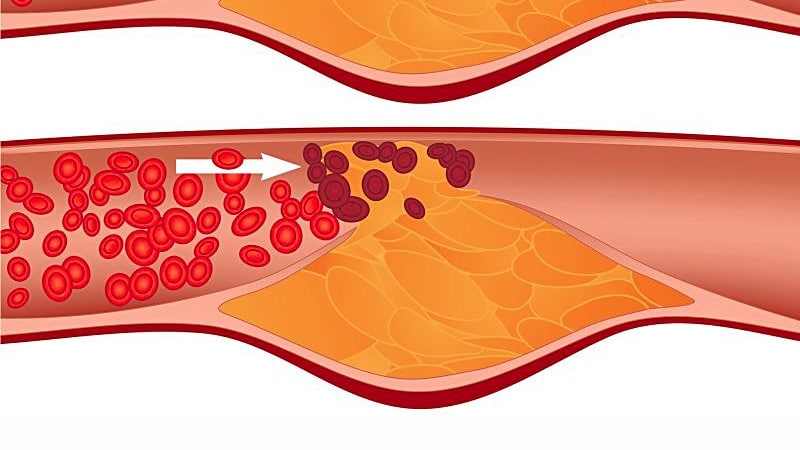—
Cutaneous alpha-synuclein deposits may serve as a biomarker
by
Judy George
,
Deputy Managing Editor, MedPage Today
March 21, 2024
- Skin biopsies detected phosphorylated alpha-synuclein in a high proportion of people with Parkinson’s disease and other synucleinopathies.
- Finding a reliable diagnostic biomarker for synucleinopathies is an urgent unmet need.
- Further research is needed in other clinical populations to validate these findings.
Skin biopsies detected cutaneous phosphorylated alpha-synuclein (p-syn) in a high proportion of people who met clinical consensus criteria for Parkinson’s disease and three other synucleinopathies, cross-sectional data showed.
Among 223 people with a confirmed synucleinopathy diagnosis, skin biopsy detected p-syn in 95.5%, reported Christopher Gibbons, MD, MMSc, of Beth Israel Deaconess Medical Center in Boston, and co-authors in JAMA.
Overall, 92.7% of people with Parkinson’s disease were p-syn positive, as were 98.2% of people with multiple system atrophy, 96% of people with dementia with Lewy bodies, and 100% of those with pure autonomic failure. In a control group, only 3.3% turned up as p-syn positive.
The findings were consistent with other studies of cutaneous alpha-synuclein in people with Parkinson’s and multiple system atrophy, and other synucleinopathies. They come on the heels of the largest analysis so far of an alpha-synuclein seed amplification assay, which accurately detected Parkinson’s disease in cerebrospinal fluid (CSF) and identified people with early, non-motor symptoms prior to diagnosis.
An easily accessible, reliable diagnostic biomarker for synucleinopathies is an urgent unmet priority, Gibbons and colleagues noted. “No disease-modifying therapy exists for these diseases, and many patients with synucleinopathy experience diagnostic delay or an initial misdiagnosis even when evaluated at movement disorder centers,” they wrote.
The study evaluated the commercially available Syn-One Test, a laboratory-developed test (LDT) launched in 2019 that analyzes levels from three small skin samples. It identifies phosphorylated alpha-synuclein in cutaneous nerve fibers but does not distinguish between synucleinopathies.
The Syn-One Test has not been cleared or approved by the FDA. Currently, LDTs are regulated by the Centers for Medicare & Medicaid Services (CMS) under the Clinical Laboratory Improvement Amendments (CLIA) program, though a proposed rule may bring such tests under FDA oversight in the future.
Gibbons and colleagues assessed the test in people diagnosed with Parkinson’s disease, multiple system atrophy, dementia with Lewy bodies, or pure autonomic failure based on clinical consensus criteria and confirmed by an expert review panel. The researchers also included controls with no findings or symptoms suggestive of a synucleinopathy or neurodegenerative disease.
All participants underwent detailed neurologic examinations and had three 3-mm skin punch biopsies taken from the neck, knee, and ankle. The study took place from February 2021 through March 2023.
The primary analysis included 96 people with Parkinson’s disease (mean age 70), 50 with multiple system atrophy (mean age 67), 50 with dementia with Lewy bodies (mean age 75), 22 with pure autonomic failure (mean age 72), and 120 controls (mean age 59).
Two subgroups were excluded from the primary analysis. The first subgroup included 27 participants with undifferentiated synucleinopathy (the expert panel could not agree on a specific synucleinopathy); 85.2% of these individuals were p-syn positive. The second subgroup included 58 participants with an unknown diagnosis (30 people originally diagnosed with synucleinopathy but who did not meet prespecified diagnostic criteria upon review in the study and 28 controls who didn’t meet criteria to be controls); 55.2% were p-syn positive.
In people with Parkinson’s disease, there was no difference in p-syn positivity between those diagnosed more versus less than 5 years ago (92.0% vs 93.5% positive).
The study had several limitations, Gibbons and co-authors acknowledged. The researchers used the Parkinson’s U.K. Brain Bank diagnostic criteria, which differ from the most recent International Parkinson and Movement Disorder Society criteria. The study also did not assess sensitivity of detecting early or prodromal disease.
Mimics like essential tremor, progressive supranuclear palsy, corticobasal degeneration, and Alzheimer’s disease were not included as disease controls, and neuroimaging and biofluid biomarkers were not required to be included in the study. No genetic testing was done, although some genetic forms of Parkinson’s disease do not have alpha-synuclein deposits. Moreover, controls had a mean age of 59, which was considerably younger than the mean ages of other groups.
Judy George covers neurology and neuroscience news for MedPage Today, writing about brain aging, Alzheimer’s, dementia, MS, rare diseases, epilepsy, autism, headache, stroke, Parkinson’s, ALS, concussion, CTE, sleep, pain, and more. Follow
Disclosures
This study was supported by a grant from NIH.
Gibbons reported receiving grants from NIH during the conduct of the study and having stock options in CND Life Sciences, which developed the Syn-One Test. Co-authors reported relationships with CND, other companies, and nonprofit groups.
Primary Source
JAMA
Source Reference: Gibbons CH, et al “Skin biopsy detection of phosphorylated α-synuclein in patients with synucleinopathies” JAMA 2024; DOI: 10.1001/jama.2024.0792.
Note: This article have been indexed to our site. We do not claim legitimacy, ownership or copyright of any of the content above. To see the article at original source Click Here













